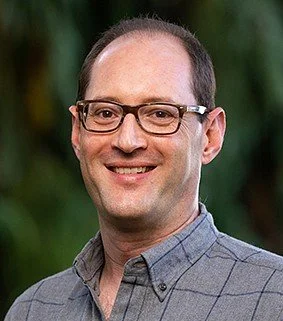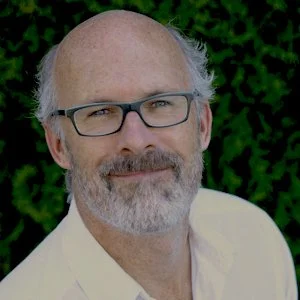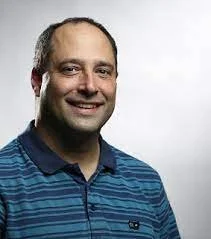Advisory Board
David McCormick, Ph.D.
Director, Center for the Science and Practice of Well-Being
Director and Presidential Chair, Institute of Neuroscience
Professor, Department of Biology
David A. McCormick is Professor of Biology and Presidential Chair and Director of the Institute of Neuroscience. He teaches a class “Happiness: a Neuroscience and Psychology Perspective” and is faculty advisor to the Positive Psychology Club at the University of Oregon.
Taking a biopsychosocial approach to social and health psychology, Megan Lipsett examines the psychosocial and neurobiological (such as inflammatory biomarkers related to immune system health and cortisol) mechanisms related to goal-directed behaviors and long-term health outcomes. She examines how perceptions impact physiology, social connection, and long-term health behaviors underlying stress-related mental health and non-communicable diseases. Focusing on mindfulness-based interventions and factors that promote resilience to adversity, she aims to promote theory-based interventions that impact stress-relevant appraisal processes.
Co-Director, Center for the Science and Practice of Well-Being
Megan Lipsett, Ph.D.
Elliot Berkman, Ph.D.
Elliot Berkman is a Professor of Psychology at the University of Oregon. His research is about the motivational and cognitive factors that contribute to success and failure real-world goals, as well as the neural systems that support goal pursuit. In addition to studying how goal pursuit works, Dr. Berkman’s research also seeks ways to facilitate health behavior change goals such as cigarette smoking cessation and dieting. Click here for more information about his research.
Professor, Department of Psychology
Director, Social & Affective Neuroscience Lab
Director, Berkman Consultants
Co-Director, Center for Translational Neuroscience
Advisory Board, Center for the Science and Practice of Well-Being
Leslie Leve, Ph.D.
Professor and Lory Lokey Chair, College of Education, Counseling Psychology and Human Services
Associate Director, Prevention Sciences Institute
Associate Vice President for Research
Advisory Board, Center for the Science and Practice of Well-Being
Professor Leve performs research on child and adolescent development, gene-environment interplay, and interventions for underserved children, families, and communities. This includes preventive intervention studies with youth in foster care or juvenile justice system, adoption studies that examine the interplay between biological and social influences on development, and COVID-19 testing outreach programs for Latinx communities. She co-directs a Center on parenting in the context of opioid use. Her work also focuses on outcomes for girls and women.
Jeffrey Measelle, Ph.D.
Professor, Department of Psychology and Global Health
Co-Director, UO Center for Global Health
Co-Director, Oregon Public Health Corps (aka Corona Corps)
Advisory Board, Center for the Science and Practice of Well-Being
Jeffrey Measelle investigates the effects of prenatal and postnatal stress on the developing brain. Much of this work focuses on at-risk communities in the US, including families contending with extreme poverty, trauma, and social isolation. A second major focus of his work is children's developmental thriving in low- and middle-income countries, especially South East Asia where he and his teams are conducting basic and intervention studies designed to protect young children against such factors as poverty, malnutrition, and the effects of trauma.
Kate Mondloch, Ph.D.
Professor, History of Art and Architecture
Faculty Fellow, Clark Honors College
Flourishing Academic Network
Advisory Board, Center for the Science and Practice of Well-Being
Kate Mondloch is Professor of Contemporary Art in the Department of the History of Art and Architecture. Mondloch also serves as a Faculty Fellow in the Clark Honors College, where she teaches “The Art and Science of Human Flourishing,” among other related courses. Her research focuses on perception, embodiment, and new technologies, with a special emphasis on the visual arts. She is currently writing a book about body-mind awareness in 21st century art and culture.
Cris Niell, Ph.D.
Associate Professor, Department of Biology
Institute of Neuroscience
Advisory Board, Center for the Science and Practice of Well-Being
Cris Niell is an academic expert in neuroscience, interested in understanding how the brain interprets sensory information and drives our actions. His lab has developed methods to study the activity of neurons and brain regions during perception and cognition, with applications that range from childhood development and education to understanding autism and schizophrenia. Current work includes investigations into the octopus visual system and the mechanisms of action of psychedelics on visual processing.
John Seeley, Ph.D.
Professor, Special Education and Prevention Science
Associate Director, Center on Human Development
Associate Dean of Research, College of Education
Advisory Board, Center for the Science and Practice of Well-Being
John Seeley’s research interests include emotional and behavioral disorders, behavioral health intervention, research design and program evaluation, and health-related technology. He is especially interested in school-based screening, prevention, and treatment for internalizing psychopathology. He serves as the principal investigator of a 4-year collaborative multisite study funded by the National Institute of Mental Health to evaluate adaptive treatment strategies for college students with moderate to severe suicidal ideation.
Emily Sylwestrak, Ph.D.
Assistant Professor of Biology, Institute of Neuroscience
Advisory Board, Center for the Science and Practice of Well-Being
Emily Sylwestrak’s recent work focuses on understanding how heterogenous, molecularly-defined neuronal populations work together to drive behavior, finding that different habenular cell types encode predictive or resultant aspects of motivated behavior, suggesting that habenular dysfunction may contribute to altered reward processing in neuropsychiatric disorders. She started her lab at the University of Oregon in Spring 2019.
Liz Riebe
Liz Riebe is a project manager and course facilitator for David McCormick’s neuroscience lab and biology class on Happiness. In addition, she is a co-faculty advisor and meditation leader for student-run organizations on campus. Her current work focuses on a well-being study examining the neural correlates and psychological processes of self-distancing, pro-sociality, and empathy in college students.
Project Manager, Institute of Neuroscience
Course Facilitator, Department of Biology
Facilitator, Center for the Science and Practice of Well-Being









